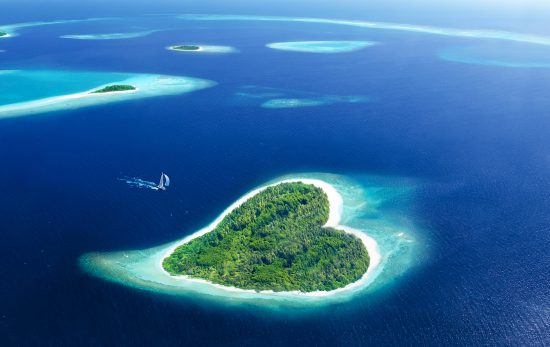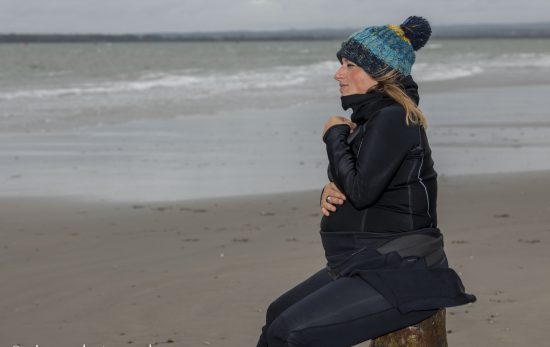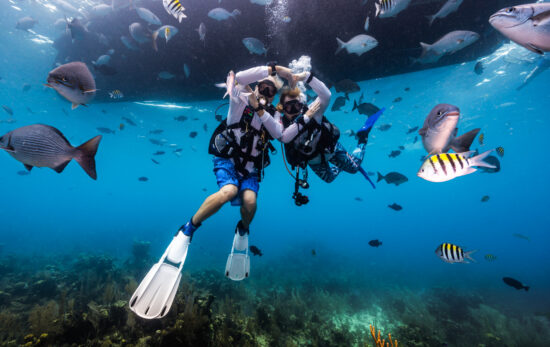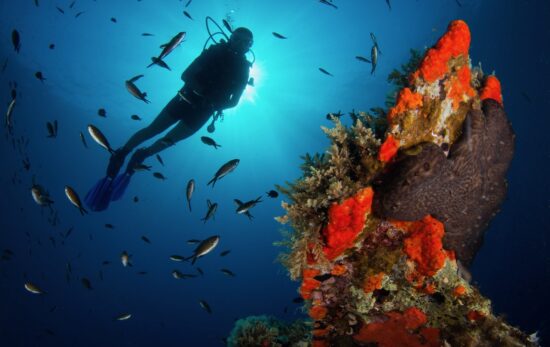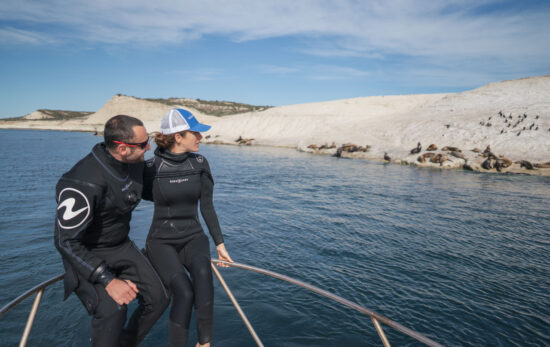In the PADI Open Water Diver course, divers learn that pregnant women should not dive. Avoiding diving while pregnant or while trying to get pregnant is also included in the guidelines of the RSTC medical form. Understandably, many people want to understand the reasoning behind these limitations.
To determine the impact of diving during pregnancy, here’s a look at some of the facts.
What we know about pregnancy and diving
Though there has been no human testing conducted to determine the effect of diving on the fetus; similar to avoiding alcohol, tobacco, and drugs, a mother needs to be mindful that what she does affects her baby. If a pregnant woman suffers from decompression sickness (DCI), there is no guarantee that it won’t harm the fetus as well.
Effects of decompression sickness
It’s not just open water dives that pose as problematic. Pool dives and freediving also have the potential to affect a fetus. Dive injuries such as pulmonary barotrauma or arterial gas embolism (AGE) can occur in water as shallow as four feet/1.2 meters deep. AGE, when air bubbles in the blood vessels or heart block the supply of blood, is a DCI that can harm a fetus even if the mother isn’t experiencing symptoms. According to the Society of Obstetricians and Gynaecologists of Canada (SOGC), animal studies suggested the possibility of fetal harm from DCI and hyperbaric oxygen exposure.
According to DAN, AGE (which can occur with or without pulmonary barotrauma) is characterized by the presence of gas bubbles in the arterial circulation. These bubbles are distributed throughout the body and may interrupt circulation or cause direct tissue trauma to the fetus.
Hyperbaric oxygen therapy
If a pregnant diver has DCI, the usual hyperbaric oxygen treatment therapy can cause further risks, by exposing the fetus to decompression stress as well as to varying pressures and depths.
DAN states that “Fully functional lungs are extremely effective in filtering bubbles from the circulation. In the fetus, however, most blood bypasses the lungs, and gas exchange occurs through the placenta. Thus, pulmonary filtration of bubbles does not occur within the fetus. This may increase the risk of arterial gas embolism (AGE), with potentially devastating consequences.”
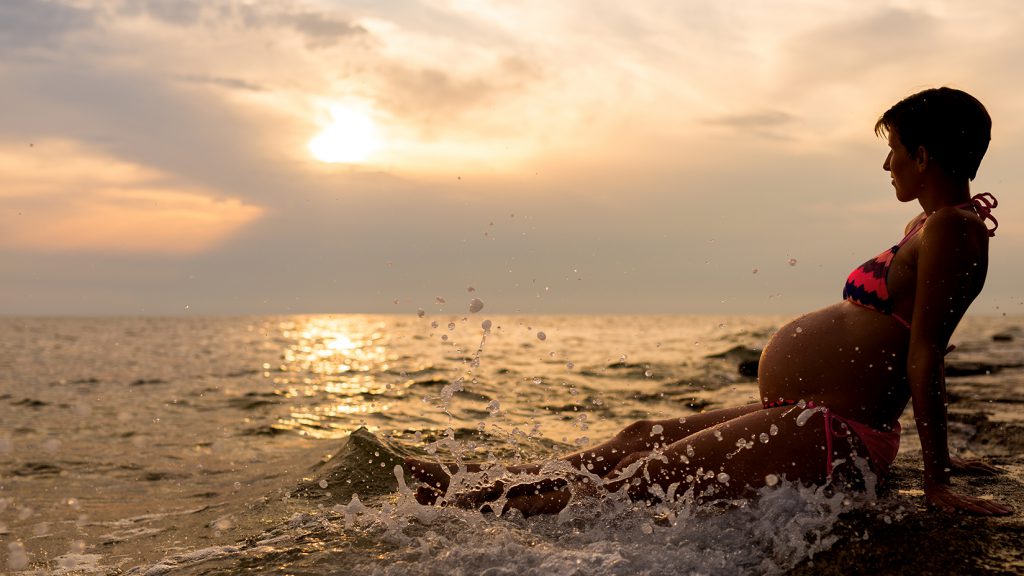
Bottom line
As with any activity during pregnancy, the best advice is to consult your physician before any physical activity.
Whether you are trying to conceive or already pregnant, avoid all types of diving to ensure your baby is born healthy and free of complications. Snorkelling and swimming are great ways to enjoy the water while pregnant. Once the baby is born, and with a physician’s go ahead, diving can resume.
